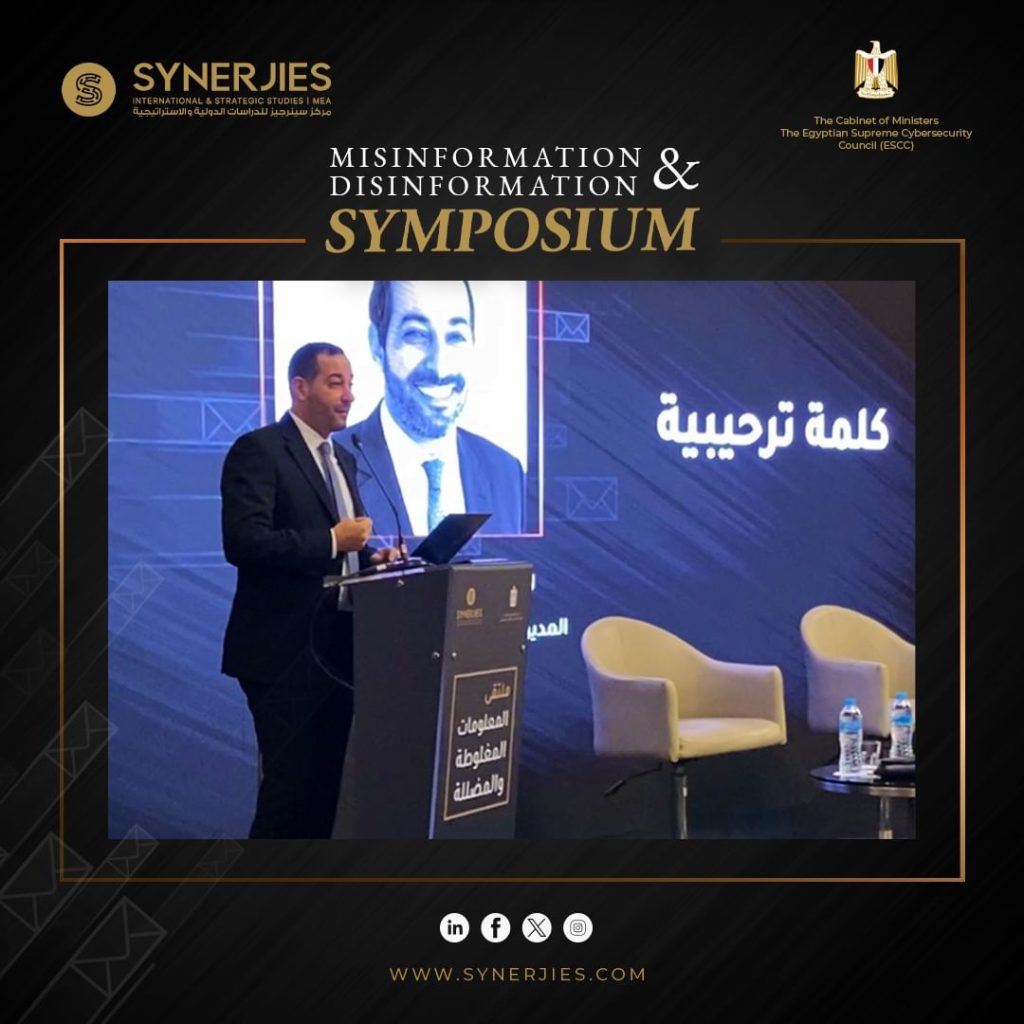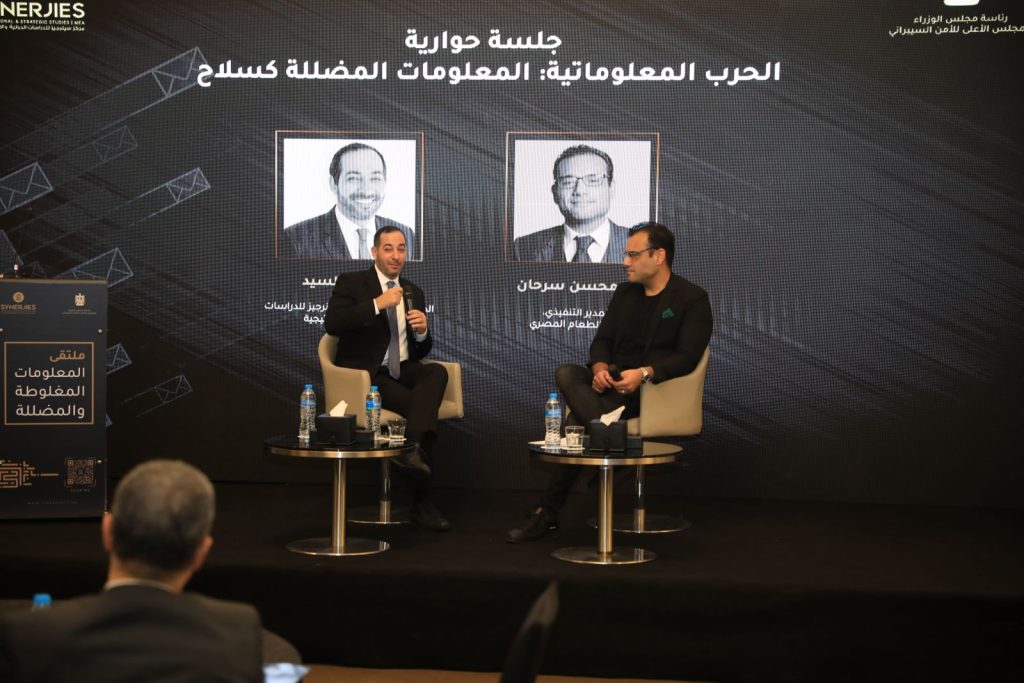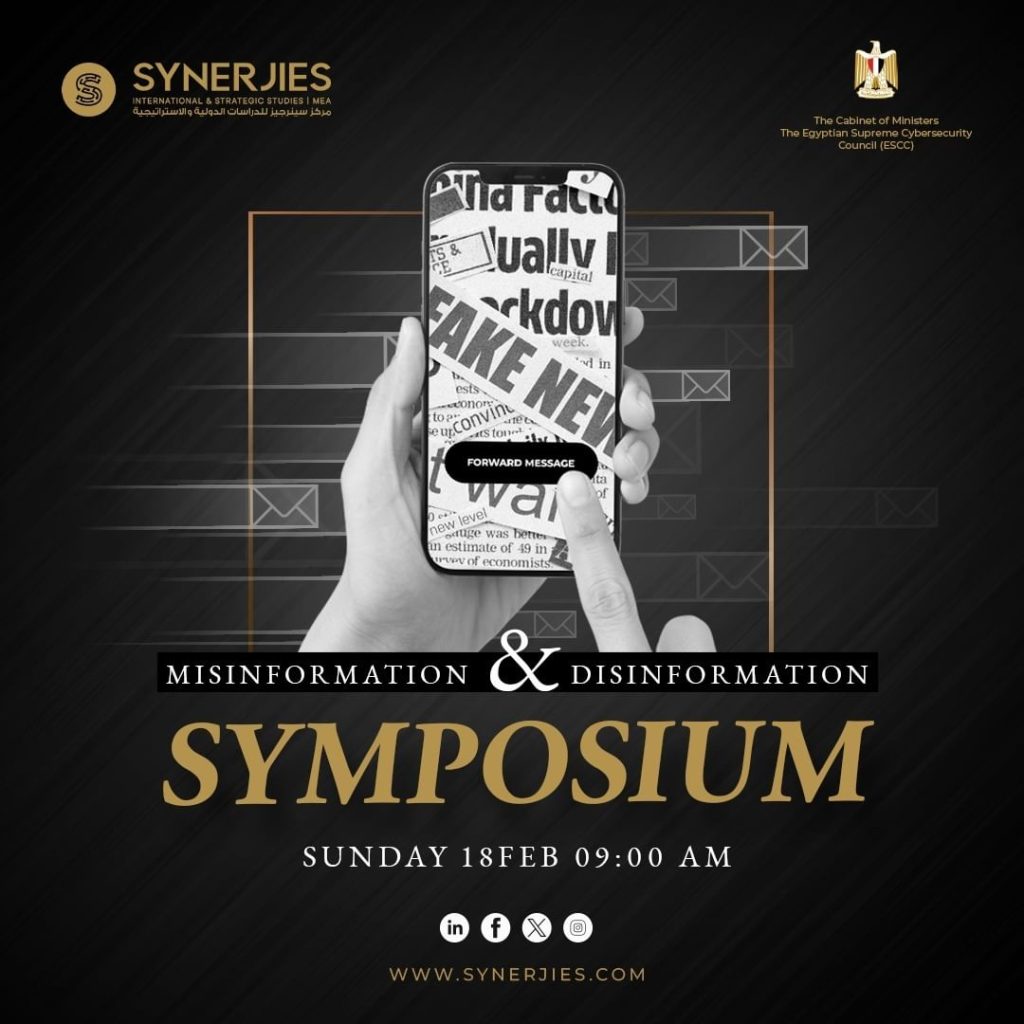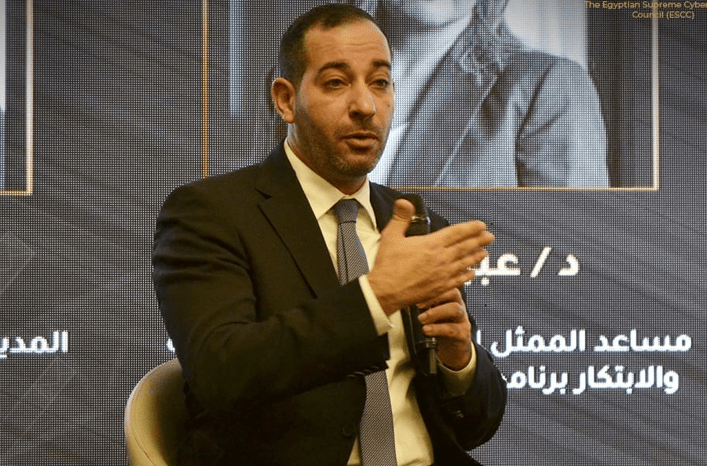In our digital age, anyone can spread any type of information on the internet, and it can go viral in a couple of hours. That’s how the internet is a double-sided weapon: it eased life but also inundated us with unverified information.
Hoping for a better dialogue about this critical issue in Egypt, Synerjies, the Center for International and Strategic Studies, recently organized a symposium highlighting the themes of misinformation and disinformation. We had the honor of attending and engaging in an insightful conversation with Synerjies’ Founder and Managing Director, Khaled El-Sayed.
From how we live in a world of misinformation/disinformation to who’s responsible for combatting this issue, here are some insights from our interview:


Misinformation & Disinformation: In a Nutshell
To kick off our dialogue, we need to showcase the difference between misinformation and disinformation.
Misinformation is false or inaccurate information that spreads regardless of intent to deceive. On the other hand, disinformation refers to deliberately spreading false or misleading information with the intention to deceive or manipulate.
Both are pretty dangerous and often spread rapidly, especially in the age of social media.
Why Is It Important To Talk About Misinformation & Disinformation?


Engineer Khaled El-Sayed emphasized the importance of changing today’s narrative surrounding misinformation and disinformation.
They often get a bad rap, yes, but it’s high time we start assessing their real impact on society. We’re not just talking about them in terms of trust or societal bonds here; there’s a hefty economic toll to consider, too, when it comes to misinformation and disinformation.
To illustrate, El-Sayed reminded us of the 2023 viral photo purportedly showing an attack on the Pentagon. On the same day, the US stock market dropped by half a trillion dollars. That’s such a powerful, tangible effect of false or inaccurate information.
How COVID-19 & Gaza Made Us Feel The Real Danger
When we speak about misinformation and disinformation, it only makes sense to remember their impact during two pivotal happenings in the history of mankind: the COVID-19 pandemic in 2020 and the latest ongoing Gaza events.
During these hard times, the whole world felt the frustration and depression of not knowing what was really happening out there. Social media and its algorithms aren’t playing in people’s favor, either. You get lost in the sea of information, and you get trapped in a dilemma: what should you believe, why, and how to believe it?
These two moments are crucial to reflect on as they directly relate to safety and terror. This is why the narrative becomes even more serious. We need to pinpoint the backlash of misinformation and disinformation and move the debate forward, just like what occurred in the symposium.
Who Is Responsible for Combating Misinformation & Disinformation?
Everyone. Technological sectors, media outlets, private sectors, NGOs, and citizens, besides the government. El-Sayed added his goal to establish an ecosystem of partnerships to work together on combating misinformation and disinformation because this isn’t the responsibility of the government only.
How The Government Is Taking Steps Toward Misinformation & Disinformation
Synerjies’ Founder and Managing Director informed us about an MOU that’ll be signed with the Egyptian Supreme Cybersecurity Council (ESCC), demonstrating the government’s involvement in the initiative.
This MOU isn’t the first, though, since Synerjies, as a think tank, is actually always partnering with the government to help them with decision-making support.
Khaled also noted that they worked with the ESCC on the child online protection strategy. It was later shifted to the women and child online protection strategies. But this was the starting point of how they can protect citizens in the online world and cyberspace.
Doing Your Role As a Citizen


As a citizen of the world, you need to play your role to prevent misinformation and disinformation.
Ending with a piece of advice from Synerjies’ Founder and Managing Director, “Think before you share, don’t click on something you’re not really sure of, and if it sounds too good to be true, then do your due diligence and double-check.”
That’s the least one can do to stop the false loop of misinformation.
We Also Said: Don’t Miss It… Empowering Egypt: Visionary Mohsen Sarhan On The Egyptian Food Bank’s 2024 Goals



